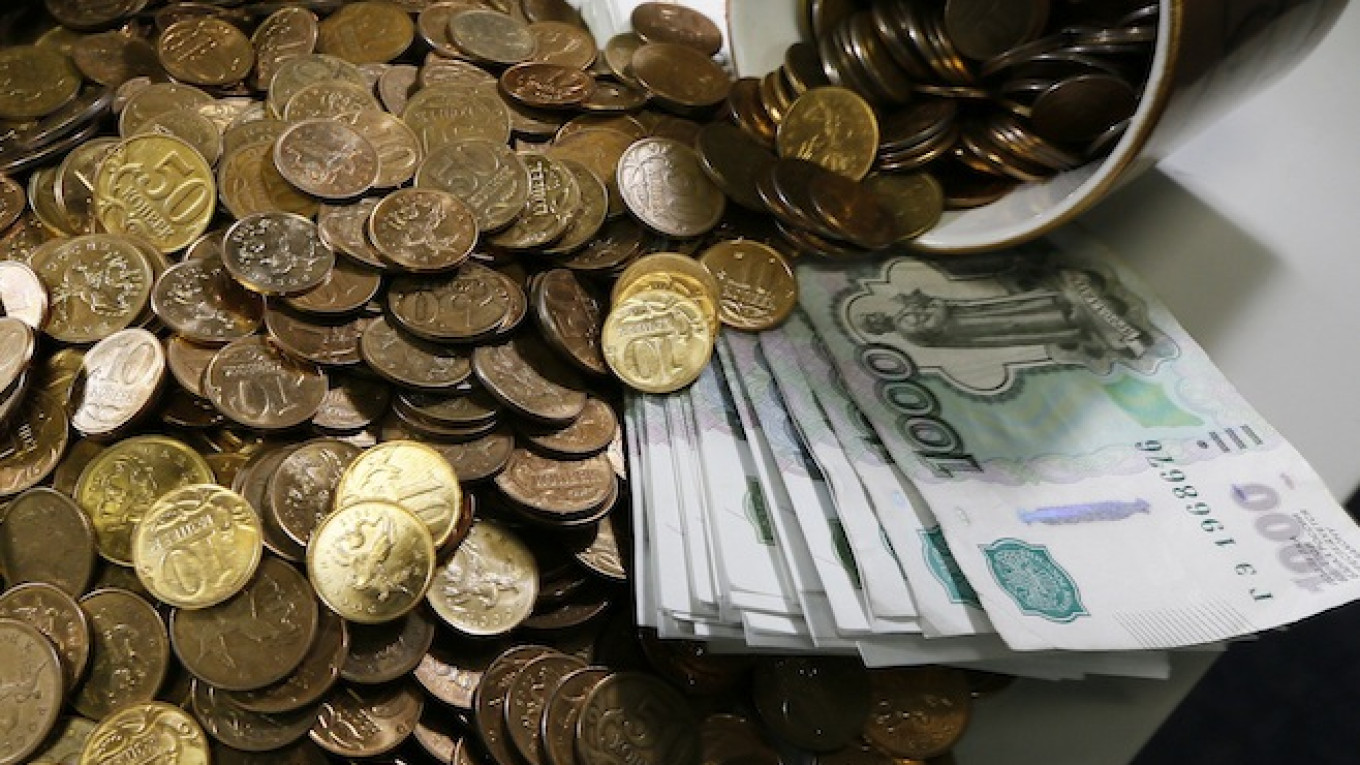The ruble fell for a second day on Wednesday on fading hopes that OPEC will agree to cut oil output and as foreign-currency sales dried up after exporters finished paying a major tax to the state budget.
At 8:30 p.m. the ruble was around 1.5 percent weaker against the dollar at 47 and 2.2 percent weaker at 58.8 versus the euro.
Traders said market moves were exacerbated by thin trading, meaning even small purchases of foreign currency were capable of moving the market sharply.
"There's practically no foreign currency offer at the moment. In the morning there was some but it was bought up. After foreign currency dipped for tax payments it started to be bought up at lower levels," said Dmitry Deyev, a currency trader at Credit Suisse.
Russian exporters on Tuesday finished paying the mineral extraction tax, one of the main monthly taxes for which they convert export earnings in dollars into rubles.
"A reduction in expectations that OPEC will cut production has been added to this," Deyev said.
OPEC leader Saudi Arabia and fellow member the United Arab Emirates signaled on Wednesday they were unlikely to push for a major change in oil output at the group's meeting this week to prop up prices that have sunk by a third since June.
Saudi Oil Minister Ali al-Naimi said he expected the oil market "to stabilize itself eventually", after talks with non-OPEC member Russia on Tuesday yielded no pledge from Moscow to tackle a global oil glut jointly.
Analysts say the results of Thursday's meeting could have a major impact on the ruble. Russia relies on oil and gas for about two-thirds of its exports so swings in their prices have a big impact on its balance of payments.
On Wednesday, oil benchmark Brent fell below $78 a barrel, down from a high of $115 this summer.
Russia sees an average oil price of $80-90 per barrel in the medium- and possibly long-term, Finance Minister Anton Siluanov said Wednesday, a day after talks between Russia and other oil powers yielded no agreement on how to address a growing oil glut.


